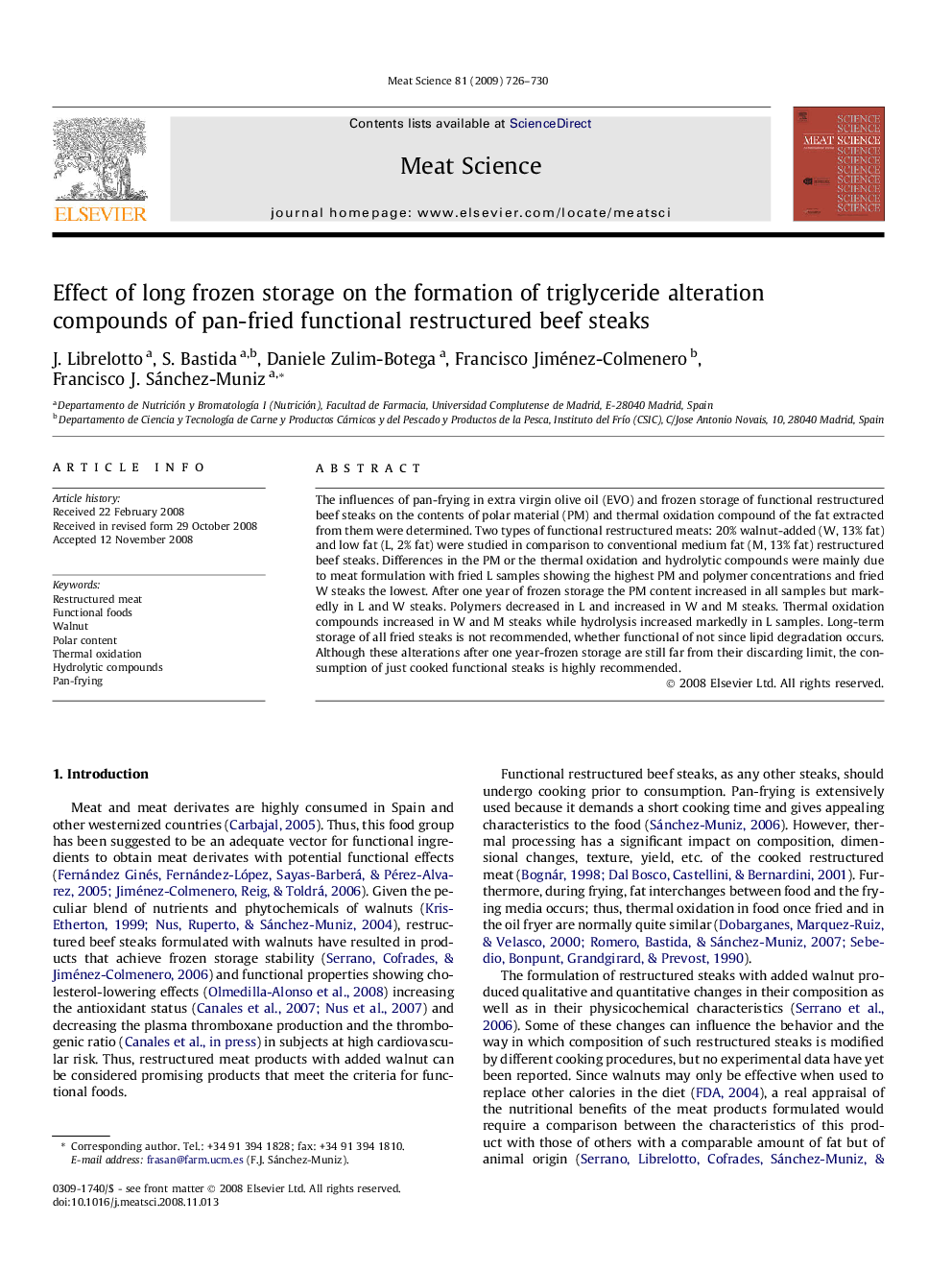| Article ID | Journal | Published Year | Pages | File Type |
|---|---|---|---|---|
| 2450505 | Meat Science | 2009 | 5 Pages |
The influences of pan-frying in extra virgin olive oil (EVO) and frozen storage of functional restructured beef steaks on the contents of polar material (PM) and thermal oxidation compound of the fat extracted from them were determined. Two types of functional restructured meats: 20% walnut-added (W, 13% fat) and low fat (L, 2% fat) were studied in comparison to conventional medium fat (M, 13% fat) restructured beef steaks. Differences in the PM or the thermal oxidation and hydrolytic compounds were mainly due to meat formulation with fried L samples showing the highest PM and polymer concentrations and fried W steaks the lowest. After one year of frozen storage the PM content increased in all samples but markedly in L and W steaks. Polymers decreased in L and increased in W and M steaks. Thermal oxidation compounds increased in W and M steaks while hydrolysis increased markedly in L samples. Long-term storage of all fried steaks is not recommended, whether functional of not since lipid degradation occurs. Although these alterations after one year-frozen storage are still far from their discarding limit, the consumption of just cooked functional steaks is highly recommended.
